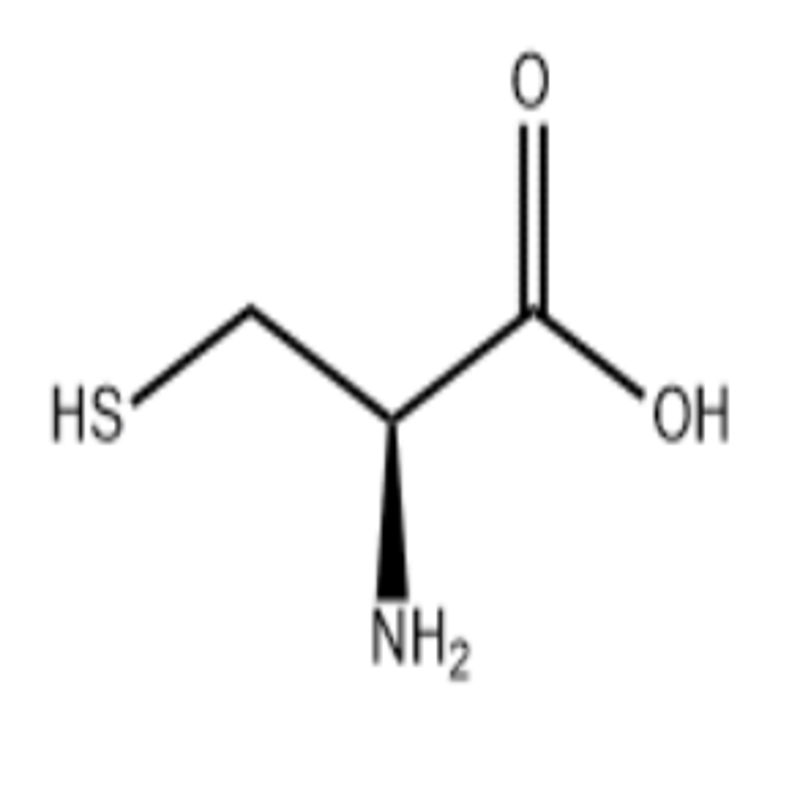-
Categories
-
Pharmaceutical Intermediates
-
Active Pharmaceutical Ingredients
-
Food Additives
- Industrial Coatings
- Agrochemicals
- Dyes and Pigments
- Surfactant
- Flavors and Fragrances
- Chemical Reagents
- Catalyst and Auxiliary
- Natural Products
- Inorganic Chemistry
-
Organic Chemistry
-
Biochemical Engineering
- Analytical Chemistry
- Cosmetic Ingredient
-
Pharmaceutical Intermediates
Promotion
ECHEMI Mall
Wholesale
Weekly Price
Exhibition
News
-
Trade Service
Food Partner Network News The first two issues of Food Partner Network took you to learn aboutthe imported food declaration and inspection system and the requirements for filling in import declaration documentsin the"Easy-to-understand Imported Food Import Declaration Guide" inSouth Korea.
In this issue, let’s learn about Korea together.
The import declaration requirements for various products willbe introduced in the following aspectsfrom processed foods, agricultural, livestock and aquatic products , appliances, containers and packaging .
In this issue, let’s learn about Korea together.
The import declaration requirements for various products willbe introduced in the following aspectsfrom processed foods, agricultural, livestock and aquatic products , appliances, containers and packaging .
1.
Items to be confirmed before import declaration
Items to be confirmed before import declaration
Before import declaration, we need to confirm the detailed inspection items and order inspection items, the handling fee of the precision inspection, and the related content of the sample quantity of the precision inspection
.
Through South Korea's "http://impfood.
mfds.
go.
kr", you can confirm South Korea's key inspection items every six months (January and July each year), the order inspection status for risk information, and various inspection costs
.
For sampling Korea, it is distinguished according to different product categories, for example: processed food is 600 (g.
ML) (capsule is 200g), fried oil processed food is increased by 1kg, cereals, beans and other natural products, vegetables 1~3kg, 3~5kg for fruits, 0.
3~4kg for aquatic products
.
Let's take a look at the import declaration requirements for various products
.
.
Through South Korea's "http://impfood.
mfds.
go.
kr", you can confirm South Korea's key inspection items every six months (January and July each year), the order inspection status for risk information, and various inspection costs
.
For sampling Korea, it is distinguished according to different product categories, for example: processed food is 600 (g.
ML) (capsule is 200g), fried oil processed food is increased by 1kg, cereals, beans and other natural products, vegetables 1~3kg, 3~5kg for fruits, 0.
3~4kg for aquatic products
.
Let's take a look at the import declaration requirements for various products
.
Two declaration requirements for various products
1.
Processing food (food additives, health functional food) declaration requirements
Processing food (food additives, health functional food) declaration requirements
The ingredients and production processes on the import declaration documents should be truthfully filled out based on the information of the production company, and the official will confirm whether they meet the requirements of the Codex Alimentarius during the document inspection
.
.
In addition, the compliance of the ingredients should be ensured before importing.
If the ingredients are not published in the "Food Code", "Food Additives Code", etc.
, they cannot be imported
.
If the ingredients are not published in the "Food Code", "Food Additives Code", etc.
, they cannot be imported
.
2.
Agricultural products
Agricultural products
When import declaration, according to the parts (roots, leaves, etc.
) and storage conditions (dry, fresh, frozen, etc.
) of each agricultural product, select the appropriate variety to declare.
If there is no suitable item, please consult the imported food inspection office of the local food and drug department.
Add new items
.
) and storage conditions (dry, fresh, frozen, etc.
) of each agricultural product, select the appropriate variety to declare.
If there is no suitable item, please consult the imported food inspection office of the local food and drug department.
Add new items
.
For the first imported agricultural products, as of August 2021, South Korea has designated 69 pesticide testing items.
If it is a random sampling inspection, South Korea will conduct testing in accordance with the "Regulations on the Inspection of Imported Food and Other Inspections" and the pesticides specified in the Food Code.
, Involving 473 pesticides, but after the revision of the regulations, 511 pesticides will be involved from October 1, 2021
.
The limit standards for pesticide residues in agricultural products can be confirmed in Schedule 4 of the Codex Alimentarius
.
If it is a random sampling inspection, South Korea will conduct testing in accordance with the "Regulations on the Inspection of Imported Food and Other Inspections" and the pesticides specified in the Food Code.
, Involving 473 pesticides, but after the revision of the regulations, 511 pesticides will be involved from October 1, 2021
.
The limit standards for pesticide residues in agricultural products can be confirmed in Schedule 4 of the Codex Alimentarius
.
3.
Livestock products
Livestock products
Livestock products can only be imported from countries permitted by South Korea, and the categories of products allowed to be imported vary from country to country.
The specifics can be confirmed in the "Countries (Regions) and Hygienic Conditions for Importing Livestock Products"
.
In addition, overseas factories must apply for registration through the government of the exporting country.
Unregistered South Korea will not accept applications, that is, only livestock products produced by overseas factories that have registered with South Korea can be exported to South Korea
.
The specifics can be confirmed in the "Countries (Regions) and Hygienic Conditions for Importing Livestock Products"
.
In addition, overseas factories must apply for registration through the government of the exporting country.
Unregistered South Korea will not accept applications, that is, only livestock products produced by overseas factories that have registered with South Korea can be exported to South Korea
.
4.
Aquatic products
Aquatic products
When applying for import, select the appropriate variety to declare according to the storage conditions (dry, fresh, frozen, etc.
) and processing form (meat, fish fillet, cooked, etc.
) of each aquatic product
.
Countries that have signed aquatic product sanitation agreements should submit sanitation certificates together with import declarations.
At present, South Korea has signed sanitation agreements with China, Vietnam, Indonesia, Thailand, Russia, Ecuador, Chile, and Norway (implemented on September 23, 2021)
.
) and processing form (meat, fish fillet, cooked, etc.
) of each aquatic product
.
Countries that have signed aquatic product sanitation agreements should submit sanitation certificates together with import declarations.
At present, South Korea has signed sanitation agreements with China, Vietnam, Indonesia, Thailand, Russia, Ecuador, Chile, and Norway (implemented on September 23, 2021)
.
5.
Apparatus and container packaging declaration requirements
Apparatus and container packaging declaration requirements
The materials of utensils and containers and packaging should be declared in accordance with the materials of the "Apparatus and Container Packaging Code", and the materials of the parts in contact with food should be declared
.
If it is natural products such as coconut leaves and banana leaves, natural materials should be declared .
Apparatus or container packaging of the same material, parts in contact with food and different colors can also be declared as one piece
.
.
If it is natural products such as coconut leaves and banana leaves, natural materials should be declared .
Apparatus or container packaging of the same material, parts in contact with food and different colors can also be declared as one piece
.
three
summary
From the above requirements, we can see that the import declaration requirements of different products in Korea are different, and the company should confirm the following matters before exporting:
1.
For processed foods, the compliance of ingredients should be ensured
.
Confirm whether the ingredients have been published in Korea, "Codex Alimentarius", "Food Additives" and the like
.
For processed foods, the compliance of ingredients should be ensured
.
Confirm whether the ingredients have been published in Korea, "Codex Alimentarius", "Food Additives" and the like
.
2.
For agricultural products, it is necessary to ensure that the exported agricultural products meet South Korea's pesticide residue limit standards
.
China's export to South Korea has a large volume of trade.
More than 30% of South Korea's agricultural products originate from China, and the unqualified agricultural products exported to South Korea are mostly due to excessive pesticide residue limits
.
For agricultural products, it is necessary to ensure that the exported agricultural products meet South Korea's pesticide residue limit standards
.
China's export to South Korea has a large volume of trade.
More than 30% of South Korea's agricultural products originate from China, and the unqualified agricultural products exported to South Korea are mostly due to excessive pesticide residue limits
.
3.
For livestock products, it is necessary to first confirm whether the products of the target country are allowed to enter, and secondly, whether the production company has completed the registration with South Korea
.
For livestock products, it is necessary to first confirm whether the products of the target country are allowed to enter, and secondly, whether the production company has completed the registration with South Korea
.
4.
For aquatic products that have signed a sanitation agreement, a sanitary certificate should also be submitted when exporting
.
For aquatic products that have signed a sanitation agreement, a sanitary certificate should also be submitted when exporting
.
The above is the relevant content of Korea’s requirements for import declarations of various products compiled by FoodPartner.
It is hoped that it can provide assistance to companies exporting to Korea.
In the next issue, we will continue to introduce the fourth part-frequently asked questions, so stay tuned
.
It is hoped that it can provide assistance to companies exporting to Korea.
In the next issue, we will continue to introduce the fourth part-frequently asked questions, so stay tuned
.
Related reports: Interpretation Series of the Guidelines for the Declaration of Imported Food from Korea (1)-Declaration and Inspection of Imported Food Interpretation Series on the Guidelines for the Declaration of
Korean Imported Food (2)-Filling in Import Declaration Documents







